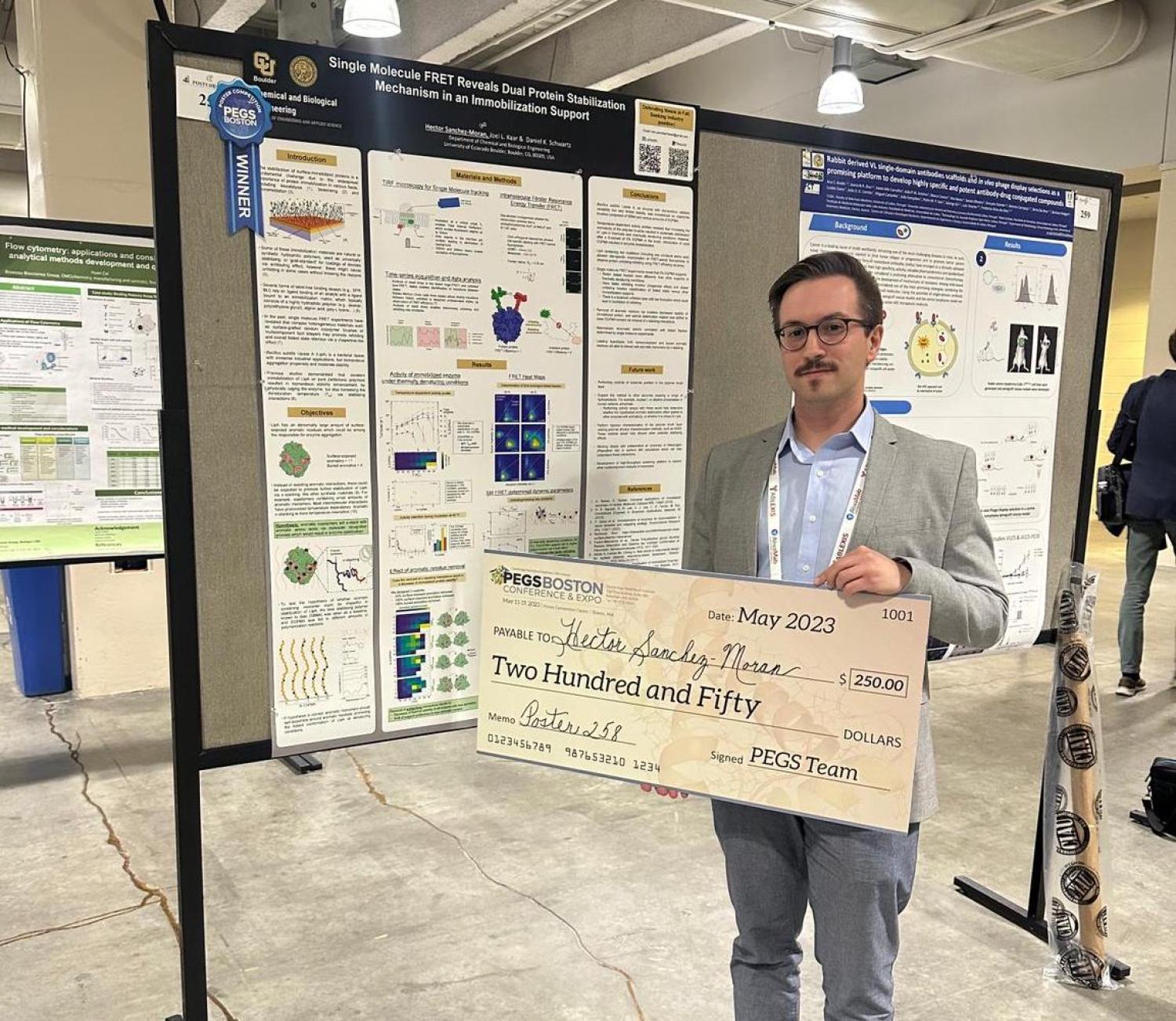Sanchez-Moran's enzyme immobilization research takes top prize at biologics summit

Surpassing more than 300 participants, chemical engineering PhD student Hector Sanchez-Moran took home first prize at the PEGS Essential Protein and Antibody Engineering Summit poster presentation competition. The summit took place from May 15-19 in Boston.
Sanchez-Moran's said his poster explored significant advancements in the field of enzyme immobilization and its applications.
"This award signifies recognition for my years of research in the Kaar and Schwartz labs," said Sanchez-Moran, who is co-advised by Professor Daniel Schwartz and Associate Professor Joel Kaar. "The award, along with the enthusiastic responses from individuals I engaged with regarding my poster, demonstrates the value the biotechnology community places on our work, highlighting the significant implications of efficient enzyme immobilization."
The summit bills itself as "the leading biologics event," with comprehensive programming covering biologic drug development, including in-depth presentations on protein and antibody engineering, immunotherapy, oncology, expression, analytics and immunogenicity.
Enzyme immobilization has been extensively employed by protein engineers for a variety of applications, including bioremediation, biosensors and industrial biocatalysts. However, the precise understanding of how enzyme immobilization and its applications interact is not yet well understood, Sanchez-Moran said. His poster shed light on the complex nanoscale stabilizing interactions that lead to the remarkable stabilization of important enzymes used in detergent production, pharmaceutical manufacturing and the food industry. While these enzymes are barely stable above body temperature, Sanchez-Moran's immobilization technique demonstrated the ability to maintain their functionality up to boiling temperatures, thereby enhancing their utility in industrial settings.
Sanchez-Moran said it was his first experience attending a conference with significant industry participation.
"It was interesting to present my poster alongside representatives from leading biotech companies and engage in conversations about their own technologies," he said. "It's fascinating to observe the delicate balance these companies maintain, walking the fine line between disseminating their findings while protecting crucial information regarding their intellectual property."

